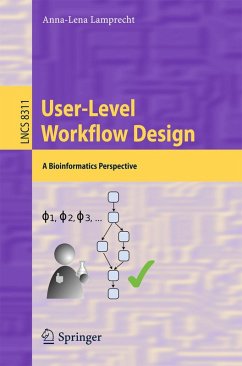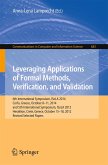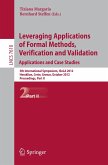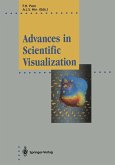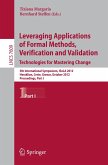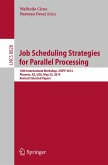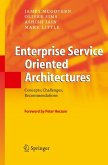The continuous trend in computer science to lift programming to higher abstraction levels increases scalability and opens programming to a wider public. In particular, service-oriented programming and the support of semantics-based frameworks make application development accessible to users with almost no programming expertise. This monograph establishes requirement-centric scientific workflow design as an instance of consequent constraint-driven development. Requirements formulated in terms of user-level constraints are automatically transformed into running applications using temporal logic-based synthesis technology. The impact of this approach is illustrated by applying it to four very different bioinformatics scenarios: phylogenetic analysis, the dedicated GeneFisher-P scenario, the FiatFlux-P scenario, and microarray data analyses.
Dieser Download kann aus rechtlichen Gründen nur mit Rechnungsadresse in A, B, BG, CY, CZ, D, DK, EW, E, FIN, F, GR, HR, H, IRL, I, LT, L, LR, M, NL, PL, P, R, S, SLO, SK ausgeliefert werden.

